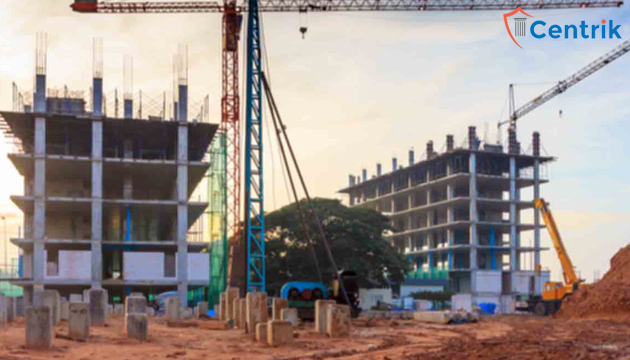
Status as on 19.11.2020
The Hon’ble High Court of judicature at Allahabad has recently clarified the definition of an Ongoing Project for the purposes of the registration of a project under Section 3 of the Real Estate (Regulation & Development) Act, 2016. “Paramount Prop Build Pvt. Ltd” had challenged the order passed by the Hon’ble Uttar Pradesh Real Estate Regulatory Authority, Gautam Budh Nagar questing the jurisdiction of the authority in passing the judgment where the project in question was not an ongoing project.
FACTS OF THE CASE:
CASE: M/S. PARAMOUNT PROP BUILD PVT. LTD. VS. STATE OF UP & ORS
The builder being the promoter of the “Paramount Golf Foreste” was unable to handover the possession of the units purchased by the aggrieved allottees, despite there being a delay of more than 4 years. For the same reason, a set of buyers filed complaint before the UPRERA praying for the possession and delayed penalty interest. The builder argued that the UPRERA has no jurisdiction to pass the judgment in the light of the fact that the project in question was not an ongoing project and thus cannot come under the purview of the RERA Act.
The builder stated the fact that the project was not an ongoing project since the completion certificate of the project was applied with the Uttar Pradesh State Industrial Development on 13.10.2016 and therefore in terms of Rule 2(h) of the Uttar Pradesh Rule, 2016, [Definition of Ongoing project] the project in question is not an ongoing project.
Rule 2(h) of the Uttar Pradesh Rule, 2016 states that:
“(h) Ongoing project means a project where the development is going on and for which completion certificate has not been issued but excludes such projects which fulfill anyone of the following criteria on the date of the notification of these rules:
- Where services have been handed over to local authority for maintenance.
- Where common areas and facilities have been handed over to the association for the Residents Welfare Association for maintenance.
- Where all development work have been complete and sale/lease deeds of sixty percent of the apartments/houses/plots have been executed.
- Where all development works have been completed and application has been filed with the competent authority for issue of completion certificate.”
DECISION BY UPRERA:
The Authority after considering the evidence on record also the inspection report as made by the technical team of RERA on 24.07.2019, held that the project is still incomplete and some no objection certificates including the fire fighting and some technical work has not yet been obtained. Thus, on the basis of the same, the Authority directed the builder to handover the possession of the units within 60 days and to pay interest on the delayed completion of the project.
DECISION BY HON’BLE HIGH COURT IN WRIT PETITION:
The Hon’ble High Court after taking into consideration every detail of the case, held that the since Rule 2(h) (iv) excludes from the ambit of the “ongoing project”, such projects where all development work has been completed and application has been filed with competent authority for issue of completion certificate. However in the present case, since the development of the project was not completed, mere filing of an application with the competent authority for the issuance of completion certificate would not bring the project in question out of the purview of the ongoing project. The Hon’ble High Court further held that such projects would accordingly be held to be ongoing projects and in terms of Section 3(1) of the RERA Act, the promoter would be liable to make an application to the authority for the registration of the said project within the stipulated time period.
Conclusion-
Every project where the development work is still not completed at the time of the commencement of the RERA Act, will be considered as an ongoing project whether or not the application for completion certificate is filed before a competent authority. Further such a project therefore has to be registered with RERA as per the provisions in the Act.
Disclaimer- The above article is based on the interpretation of the related laws and judicial pronouncements. The readers are expected to take legal advice before relying on this article. The author can be reached at support@centrik.in




 join For Updates
join For Updates